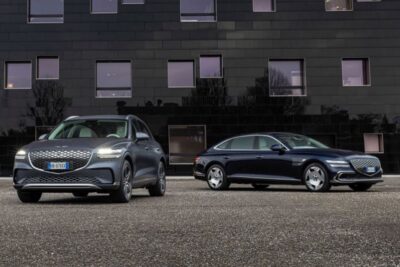UK extends grant schemes for private and commercial EVs
The most recently extended scheme focuses on electric trucks with a weight of over 4.3 tonnes, with a maximum discount of £25,000.
There are two types of electric truck discounts available based on the size of the truck in question. Small trucks must be N2 vehicles weighing between 4.25 and 12 tonnes, while large trucks must be N3 vehicles weighing more than 12 tonnes. Both types of trucks must be capable of travelling a minimum of 96km without any emissions, and produce at least 50% less CO2 emissions than the equivalent conventional Euro VI vehicle.
For small trucks, this includes the likes of the FUSO eCanter, the Iveco eDaily, the Paneltex Z75 and others. Meanwhile, some of the large trucks include the Electra e-Compact, the Electra e-Star, the Mercedes-Benz eActros and the Renault Trucks D-Range among others.
The UK government’s website states that the van and truck grants are “available to all private individuals and businesses buying or leasing a vehicle at the point of purchase directly from the dealership or manufacturer”. Vehicle manufacturers or dealerships must register vehicles for the scheme, apply the discount to customer sales, and then they receive the money back in the form of a monthly payment.
Each business, organisation, or individual can receive a total of 1,500 plug-in van or truck grants per financial year. However, only 10 small truck grants will be paid per entity at the higher rate of up to £16,000, before reducing to £5000 after that. For large trucks, there’s a limit of five £25,000 grants, ten £16,000 grants, and further grants reducing to £5000 after that.
The total amount of each grant can vary depending on the value of the truck being purchased, and this is due to the fact that the grant covers 20% of the purchase price up to a maximum of £16,000 for small trucks and £25,000 for large trucks. There are also an annual limited number of grants nationwide, with only 250 £16,000 grants for small trucks and 100 £25,000 grants for large trucks available across the whole market. Once these limits have been reached, the grant will be paid at £5000 for small trucks and £16000 for large, respectively.
In February, the government also announced that the plug-in van grant was being extended. Similarly to trucks, the discount is based on the size of the van in question. So, small vans weighing less than 2.5tonnes can attain a discount of up to £2500. This includes the likes of the Citroen e-Berlingo, the Fiat e-Doblo, the Renault Kangoo e-Tech and others. Large vans weighing between 2500 and 4.25tonnes can receive a discount of up to £5000 – so vans like the Ford E-Transit range, the Fiat e-Ducato, the Nissan Townstar, and the Volkswagen E-Transporter would qualify in this category.
In a tweet, Future of Roads minister Lilian Greenwood said: “We’re extending our Plug-in Truck Grant for another year, making it cheaper to buy a zero-emission truck & make the switch. On top of £200m to roll out ZE trucks & charging infrastructure – supporting jobs & securing our future”.
These are just two of the EV grant schemes that have recently been extended by the UK government. The Department for Transport has also announced grants of up to £4000 for taxi drivers switching to EVs, £500 grants for bikers purchasing electric motorbikes, and an increase in the plug-in wheelchair accessible vehicle grant cap from £35,000 to £50,000.
As well as grants for new vehicle purchases, existing charging schemes have also been extended. The Workplace Charging Scheme, which covers up to 75 per cent of the purchase and installation cost of charge points, will now run until 31 March 2026. This is open to businesses, charities, public sector organisations and small accommodation businesses, and can provide a maximum of £350 per charging socket and fund 40 sockets per applicant. The DfT has said that the scheme has provided around £21.8mln in funding workplace carparks since 2016 – roughly 60,000 sockets.
Then, there’s the Electric Vehicle Chargepoint Grant (EVCG). This helps fund the purchase and installation of EV charge points to landlords, car park owners, and drivers who lack off street parking of their own. As of 1 January 2025, the EVCG funded more than £13.2mln worth of charging sockets and infrastructure since its launch in April 2022.





0 Comments